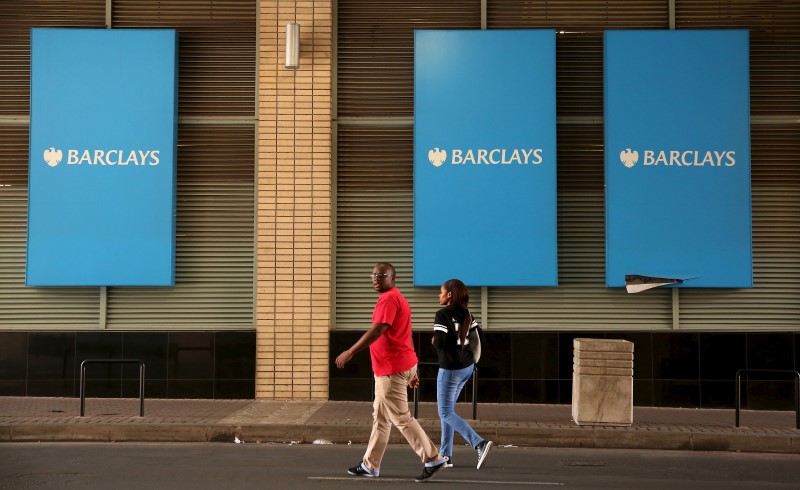By Sarah N. Lynch
WASHINGTON (Reuters) - Barclays (L:BARC) and Credit Suisse (VX:CSGN) have settled federal and state charges that they misled investors in their dark pools, with Barclays admitting it broke the law and agreeing to pay $70 million, federal and New York state officials said on Sunday.
The settlements between the banks and the U.S. Securities and Exchange Commission and the New York state attorney general mark the two largest fines ever paid in connection with cases involving dark pools.
The amount to be paid, in fines and disgorgement, is a combined total of $154.3 million.
At the heart of the cases against both Barclays and Credit Suisse are allegations they misled investors in the dark pools, saying they would be protected from predatory high-frequency trading tactics.
Barclays will pay a $70 million fine split evenly between the SEC and New York state, admit it violated securities laws and agree to install an independent monitor to ensure that its dark pool "Barclays LX" operates properly in the future.
Credit Suisse will pay a $60 million fine split between the regulators, plus an additional $24.3 million in disgorgement to the SEC for executing 117 million illegal sub-penny orders out of its dark pool known as "Crossfinder."
Dark pools are trading venues that differ from public exchanges because orders are not visible to other traders until they are executed.
The lack of pre-trade price information is designed to help institutional investors trade large blocks of shares without the market moving against them.
As part of the settlement, Credit Suisse will neither admit nor deny the allegations.
A Credit Suisse spokeswoman said the bank was pleased to have resolved the matters with the SEC and the New York attorney general.
A Barclays representative said the bank was pleased to resolve the case as it will enable the company to focus its efforts on serving clients.
The settlement with Barclays marks a dramatic end to a high-stakes public legal battle between the bank and New York State Attorney General Eric Schneiderman.
Schneiderman's office filed a lawsuit against Barclays in June 2014 alleging fraud in its dark pool.
The lawsuit alleged that the bank told investors it had a "liquidity profiling" service that was meant to let traditional investors opt out of trading with high-speed traders.
In fact, Schneiderman's office said, the program was riddled with "exceptions" that favored high-speed traders.
The bank also disseminated trading analysis materials to investors that intentionally deleted its largest and most aggressive trader, Schneiderman's office said.
The lawsuit came after the furor over Michael Lewis' book "Flash Boys," which charged the stock market was rigged in favor of high-frequency traders.
Barclays lost a bid to have the case dismissed last year.
"These cases mark the first major victory in the fight against fraud in dark pool trading that began when we first sued Barclays," Schneiderman said in an emailed statement. "We will continue to take the fight to those who aim to rig the system and those who look the other way."
SEC Chair Mary Jo White said in a statement: "These cases are the most recent in a series of strong SEC enforcement actions involving dark pools and other alternative trading systems.
She added that the agency "will continue to shed light on dark pools to better protect investors."
Regulators did not charge any individuals at the banks in connection with the two cases.

However, Schneiderman's office said that Barclays made personnel changes after the lawsuit was filed by removing two employees in the electronic trading group from their supervisory roles.